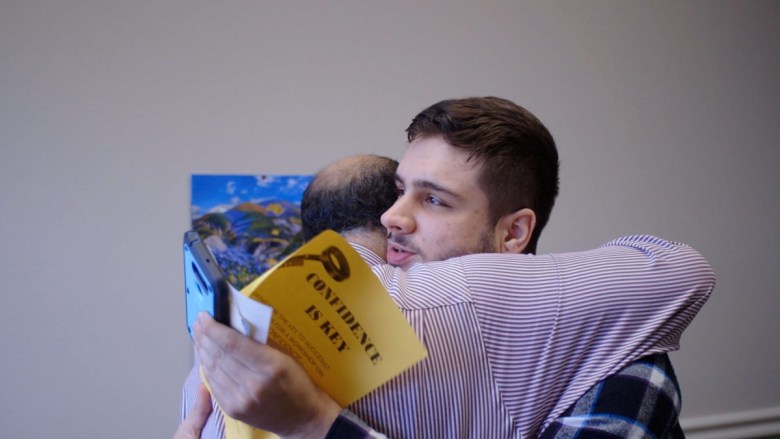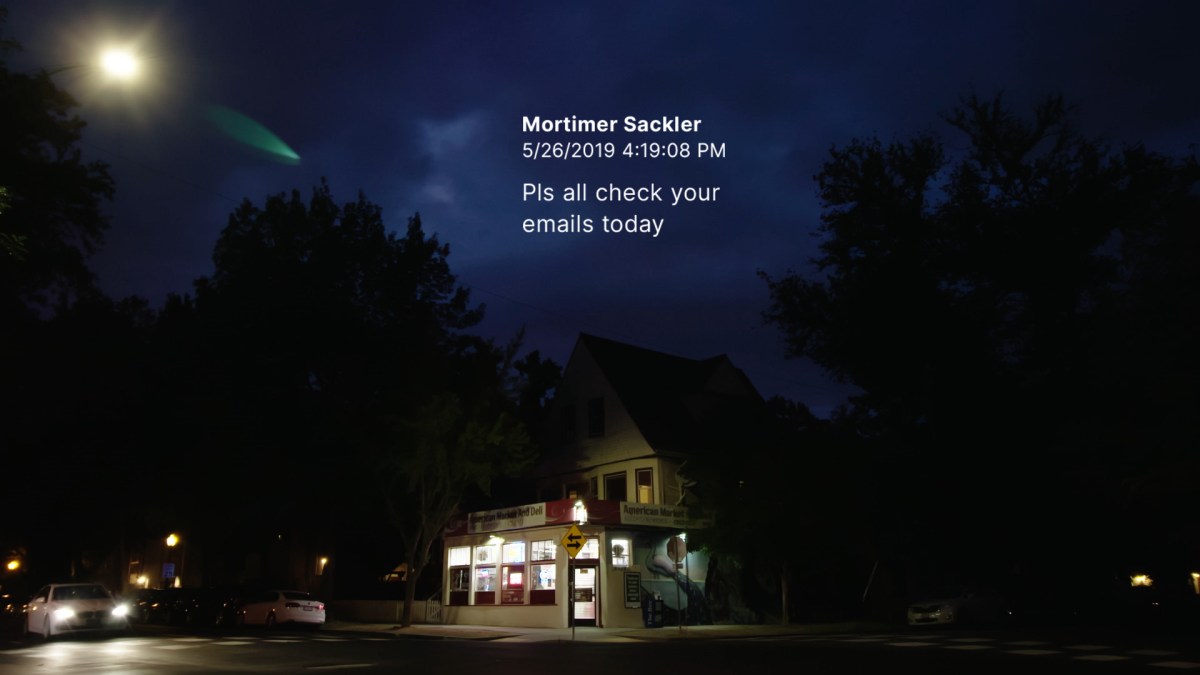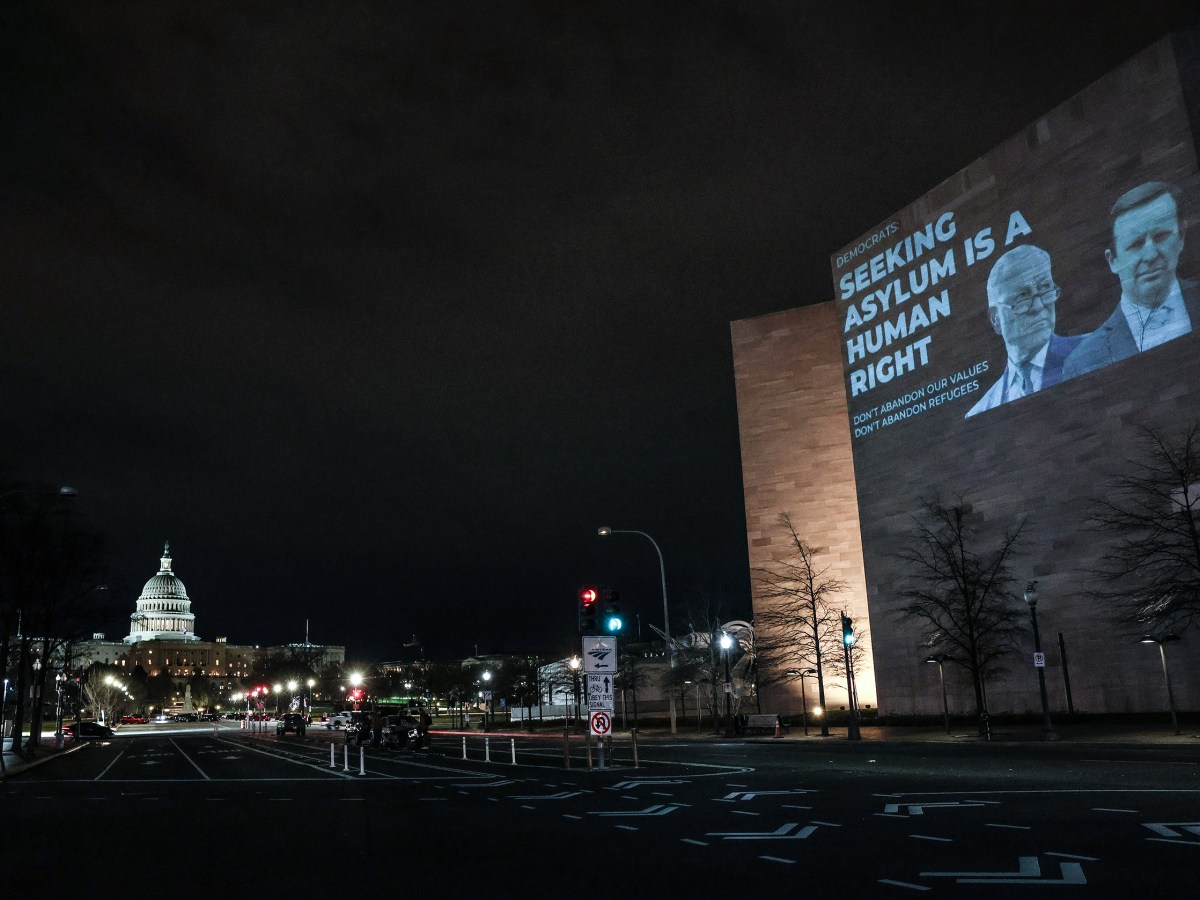From fossil fuels to tobacco, history’s most notorious abusers are often known only by a company name — or worse, evasive industry catch-alls like “big oil” or “the Tech Giants.” With such a sly system of nomenclature in place, it’s easy to forget that businesses and institutions are made up of people whose individual decisions can shape our lives. For years, the Sackler family hid behind this shield of corporate anonymity while reaping billions in profits via Purdue Pharma and its highly addictive painkiller OxyContin.
That is no longer the case. The Sacklers, architects of the lethal marketing strategy that resulted in the signature drug’s mass overprescription, are a household name, largely thanks to the activists and relatives of victims who took to museums, universities, and courthouses to lift the family’s philanthropic veil. Yet despite their notoriety, no Sackler has ever admitted to wrongdoing for their role in the opioid crisis.
This chilling fact sets the stage for The Family Statement (2023), a new short film directed by Grace Harper and Kate Stonehill structured around messages sent in the family’s WhatsApp group between 2017 and 2019, unsealed as part of the Purdue Pharma bankruptcy case in December 2020. The 15-minute documentary weaves snippets of these private exchanges with shots of desolate parking lots and suburban towns, scenes from substance abuse treatment centers, and interviews with people impacted by the opioid epidemic.

“It is widely understood that addiction is something that is experienced by a family, so we were interested in the ways in which the Sacklers can also be understood, seen, and experienced as a family,” Harper and Stonehill told Hyperallergic, noting that they were moved by experiences of prescription opioid abuse in their own families and communities.
The messages in the Sackler family chats sometimes reveal a flippant attitude toward making repairs for the more than half a million deaths from opioid overdoses during the most fervent period of OxyContin sales. “Why do we need to set up a separate foundation,” Samantha Sackler Hunt, daughter of Mortimer Sackler, protests in November 2017. “No amount we put in will ever be enough.”
“No $ is enough for the PR,” admits Jeffrey Lefcourt Sackler, grandson of Mortimer. “But I think we can find ways to make a big difference and help solve the problem.”
“Not the PR problem,” he quickly clarifies. “The people addiction and people dying problem.”
In the chats, a chorus of holiday greetings (“enjoy the turkey!”) might be followed by an abrupt return to business as usual, creating a bizarre contiguity in which banal interfamily chatter and corporate damage control are one and the same. These exchanges culminate in the milquetoast testimony of OxyContin developer Richard Sackler’s son David Sackler during a December 2020 virtual hearing of the Committee on Oversight and Reform, also excerpted in the film. The scion uses this opportunity to reiterate that he and his family “deny liability,” adding that they “are truly sorry to everyone who has … suffered from the scourge of addiction.”

The Sacklers have long demanded immunity from opioid-related civil claims, instead choosing to sink Purdue Pharma and abandoning ship with all the loot they can get away with. But this summer, the Supreme Court blocked a $6 billion opioid settlement that would have granted this bulwark from litigation, a glimmer of hope for victims and advocacy groups. Nan Goldin’s PAIN Sackler, which has long fought to not only expose the family’s part in the epidemic but also fund rehabilitation programs and other addiction treatment, called an early version of the settlement that protected the Sacklers’ wealth “justice for sale.”
“There has been a public relations effort to craft a narrative where the Sackler family name was associated with art and philanthropy rather than Purdue Pharma,” said directors Harper and Stonehill. “We wanted the film to reflect the confusion and uncertainty that we’ve lived with, and bring it into dialogue with the vehement efforts to control this narrative.”
The last three years have seen a surge in media about the Sackler saga, from Patrick Radden Keefe’s 2022 exposé Empire of Pain to the TV adaptations Painkiller (2023) and Dopesick (2021). One wonders how many more films, books, and articles must come out before Purdue Pharma’s profiteers face individual consequences. With just two weeks to the bankruptcy case hearing on December 4, and as a slim chance of accountability hangs in the balance, The Family Picture feels especially timely.
The Family Statement can be viewed in its entirety online on the documentary group Field of Vision’s website.












